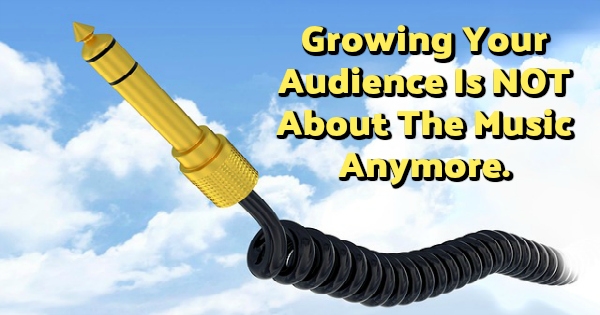I’m about to piss you off.

But keep reading because it’s important.
Growing your audience is NOT about the music anymore.
It used to be that way because the process dictated it.
The quality of your music today has nothing do with getting fans/customers when you’re marketing online.
Hostile?
Disheartened?
It’s ok because the music is still super important, but the process of getting your art In front of new eyeballs has changed.
Radio and TV were the old way to expand a new artist’s audience. Back in the day, the music was what was being played on the radio or a TV show so the music came first because the music came first in the marketing process.
Think about that. We heard the music first (and enough times) before we asked about who the artist was. The discovery process started with the music.
Now the opposite is true because, for the moment, it has to be that way.

Maybe you work a job remotely from home. You can do that job in your underwear and a robe because your appearance isn’t mission critical to your success every day. If you have to go into an office, you’d better play the part, right? I’m not saying that any attire is more important to you than the robe, but I am saying the outcome depends on the situation and the situation depends on the platform.
You will hear music business veterans tell you, “It’s incredible what a really good hit song can accomplish†and they would be right…in the 50’s, 60’s, 70’s, 80’s, 90’s, and 2000’s, but not today. Not exactly because it’s changed.
When the music came first a hit song could break an artist but now the music comes second so who will hear it?

I’m generalizing, of course, but is this how you want to construct your business plan? Do you want to place all your hopes and dreams on a blueprint that requires you to be an exception to the rule? Is your success strategy based on winning the lottery?
Do you really want to be the artist in 2017 or 2018 with a record deal, boatloads of talent, but no audience?
Be careful what you ask God for because I know a ton of these artists and they’re sitting on a shelf at a label waiting. They’re on the back burner. Â Their label deal and $2.51 will get them a venti drip at Starbucks.
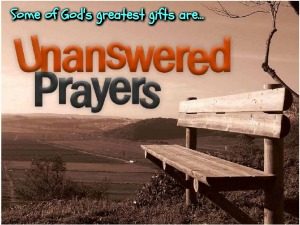
Today the artist, a fan’s relationship with the artist, and good marketing come first. The music comes second because you won’t find an audience anymore on the radio.
Let me articulate that point more clearly. You won’t find an audience anymore on the radio.
This is because people used to be forced to listen to new songs, now they have choices. People are choosing NOT to listen to the radio.
Here are a couple facts to support this argument. The big three companies that own the majority of the P1 (major market) radio stations are CBS, Clear Channel (aka IHeartRadio/iHeartMedia), and Cumulus.
CBS has spun off (aka sold) all of their stations. In plain English, CBS is out of the radio business.
Why?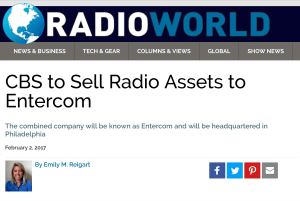
They’re losing money.
Why are they losing money?
Because radio makes their money on advertising revenue. The size of any given platforms audience directly determines the amount of money they can charge for advertising. Think about the Super Bowl. The cost of a 30-second ad is so outrageous because 1 billion people are going to watch it all at the same time.
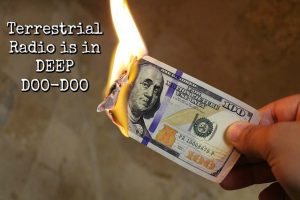
But nobody is listening to the radio so the revenue checks kept getting smaller and smaller coinciding with their declining listenership. But the overhead (outgoing checks) are the same. The cost of maintaining the equipment, taxes, admin staff, talent payroll, and performance license expenses is the same if they’re not increasing.
Why do you think they created the “Jack FM†or “Bob FM†formats? The marketing precept that they’re “playing what we want” is designed to divert your attention from the fact that these platforms have no DJ’s. No DJ’s means fewer expenses.
Get it?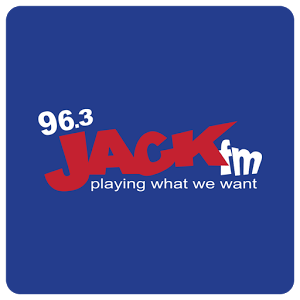
When a business or industry is on the way up the bell curve, the visionaries are at the helm taking risks and changing the world by serving the customer better. When that industry is on the way down, the bean counters come in to manage the decline. That’s a fact no matter what industry you’re in.
Clear Channel (IHeartRadio) just released their 2017 first quarter report and it looks like they’re going to declare bankruptcy for the second time. They’re done. The government will break them up and sell off the pieces. Look at Clear Channel’s stock price it’s essentially flat-lined at its lowest level ever for the last year.
I PROMISE Cumulus is right behind CBS and Clear Channel.
Why?
Because the market has changed.
There’s your proof that radio isn’t working anymore. For radio to work, you need to have millions of people listening and hardly anyone is listening anymore because we got smartphones and a million easy ways to play our jam.
Our “Jam†is what we all want to hear. We don’t want to listen to anything new.
Because you’re not listening to the radio means you don’t have to “suffer†through listening to new songs from new artists. You can satisfy that pleasure point in your brain immediately by playing a song you know rather than taking a risk on one you don’t.
So, the market has changed and is continuing to morph, is it not?
The marketing strategies must adjust to the changing market.

We have to adapt and switch to online marketing. Masses of people are not going to listen to anyone’s new song online like they did in radio. It just doesn’t work that way. I wish it did, but it doesn’t.
You MUST understand that social media and the internet are mediums but those mediums are consumed differently than radio. If you don’t understand this fact, you’re sure to fail.
Here’s an example. When I started in the mortgage industry I was an exceptional cold caller. I worked for a multi-billion-dollar company (initially) and they taught you to make 200 calls a day to get 3-5 applications. One day a guy picked up the phone and after my greeting, he sighed. He told me, “Johnny, you’re the 70th person that I don’t know to call me today about doing my mortgage.â€
Wow.
I thought there has to be a better way.

I drastically changed my approach from the norm and took a risk. A big risk. The recording studio in my house allowed me to create and record a radio show. My buddy agreed to partner up so if it failed I only was responsible for 50% of the downside.
We picked a station and made a deal. They sold us time on Saturdays in 30-minute slots. It cost $450 per 30-minute slot and we had to commit to 6 months which turned this marketing idea and contract into a $12,000 bill.
Yikes!

Jason and I recorded and broadcast our first show. We put some time into creating a format that had a beginning, middle, and end. The show was loaded with informative content that mortgage consumers would find value in.
Zero phone calls.
The next week we recorded and broadcast our second show.
Zero phone calls.
The third-week same format on the show that was broadcast.
Same result too, ZERO phone calls.
Right about then, as you can imagine, I WAS FREAKING OUT!!!!
I called the station manager for guidance. She asked me, “Johnny, are you feeling enough pain to listen to every word I’m going to tell you and do EXACTLY as I say?â€
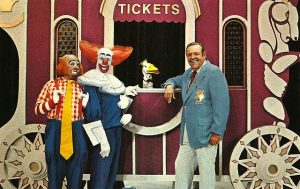
I replied, “I will freaking wear a Bozo outfit with the big shoes and the horn if you tell me to.â€
She informed me that the way we were formatting the show was incorrect. We had a 30-minute slot with 25 minutes of content to create (the other 5 was for commercials). Our problem was that we had structured our show like a television program. As if the listeners consumed radio the same way as they consume television. Which is a completely different medium. She told us that on Saturdays the listeners were out running around taking care of errands and catching bits and pieces of any radio show. Do you see how different that is to sitting down and giving their complete attention to the program like they do on a TV sitcom?
She said, “Instead of doing one 25-minute show, break it up into five 5-minute shows. Change the metaphors so you don’t bore the few people who are listening all the way through and mention your phone number every 2 minutes. I’m not kidding, put a timer by your mic and EVERY 2 MINUTES give your phone number. I promise the phone will ring.â€
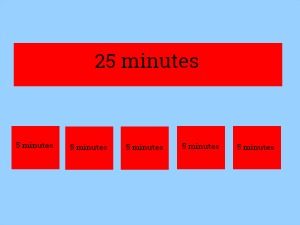
 We did just that. We adapted to the different medium that was consumed differently than what we were used to and BOOM.
We got 5 calls on that 4th show with 2 of them turning into loans. The revenue from those 2 loans paid for that $12,000 commitment and we were off and running. Within 5 months we were on 5 different stations in 3 different markets. We were receiving around 70-100 phone calls per weekend. That resulted in a steady monthly gross income of around $180,000-$300,000. That’s a business.
Here’s the takeaway. Social media and online marketing are consumed differently than television which is consumed differently than radio.
 You better know the difference.
You better know the difference.
The music doesn’t come first online. The artist does.
The music is important just like a product is important because great music and great products will get you repeat customers.
But you can’t get repeat customers without customers and getting customers online has nothing to do with the music or the product.
I’ll repeat that last part.
Getting new customers has nothing to do with the music or the product when you’re marketing online.
Stay
In
Tune.
If you liked this article, please SHARE and COMMENT

